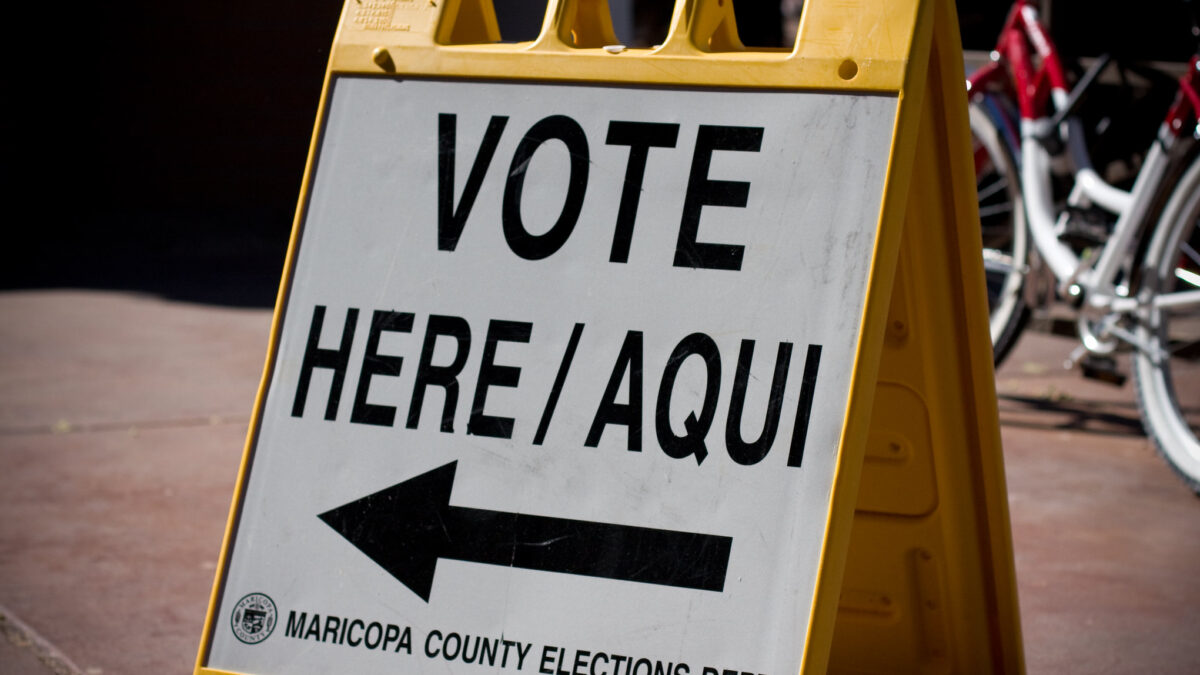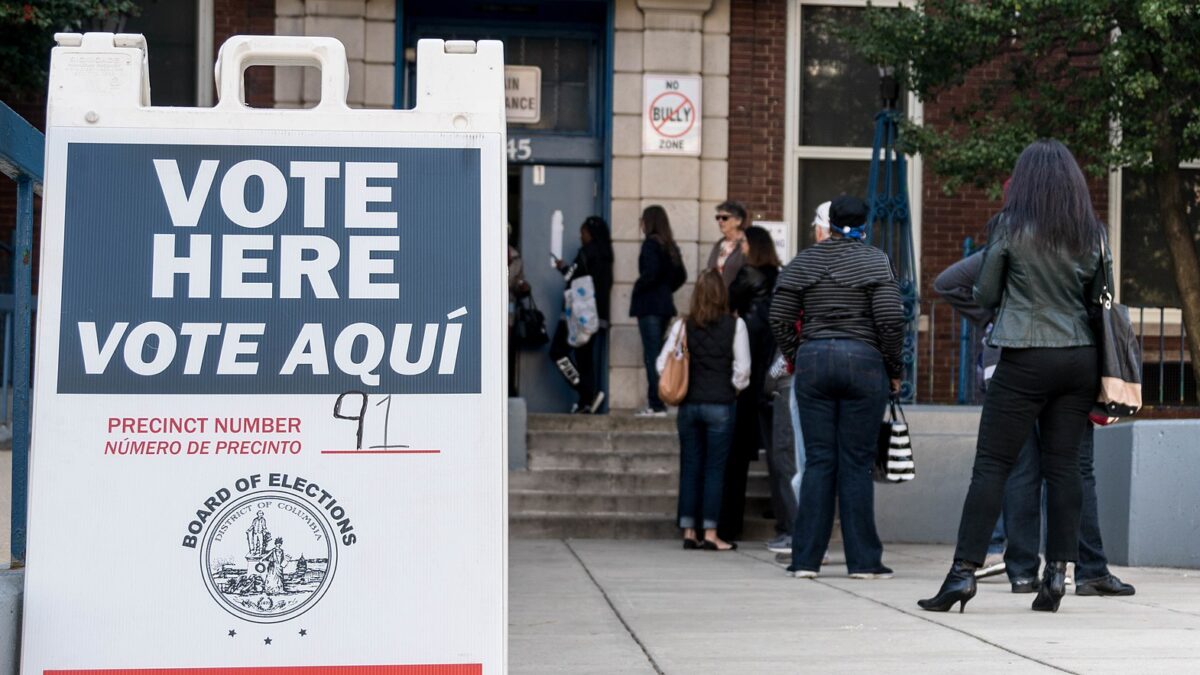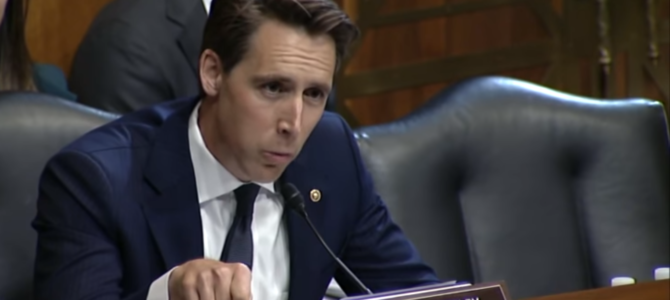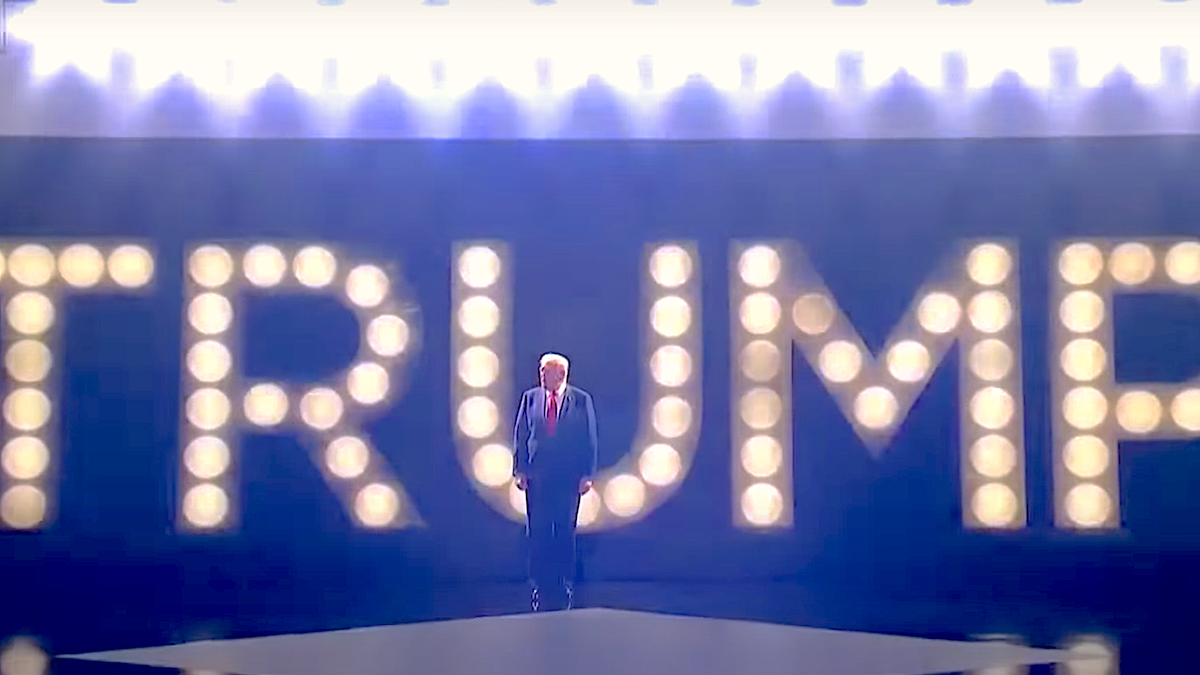French President Emmanuel Macron’s coalition of “centrists” reportedly conspired with the far-left New Popular Front (NFP) to prevent Marine Le Pen’s populist National Rally party from taking control of Parliament on Sunday. It was a surprising result after Le Pen’s party swept the floor in the first set of elections and was seemingly poised to secure a majority, and U.S. Republicans should heed the reminder that no election is safe from partisan tricks, even when the odds — and voter confidence — seem to be in your favor.
During the first round of voting for the National Assembly on June 30, Le Pen’s National Rally party performed better than Macron’s Renew party and the NFP, emerging as “the clear winner” based on “the first round of voting,” according to EuroNews. Still, no party had met the 289-seat threshold to be declared the majority.
A second round of voting to fill 501 of the 577 seats for the National Assembly was scheduled for Sunday, according to EuroNews. Ultimately, the socialist NFP won 183 seats, “making it the largest group in the 577-seat parliament,” CNN reported. Macron’s party won 163 seats and Le Pen’s party won 143 seats.
As EuroNews explained, “In the frantic week between the two rounds, more than 200 centrist and left-wing candidates pulled out of races to boost the chances of their moderate rivals and try to keep National Rally candidates from winning.”
“Final pre-election polls suggest that tactic may have diminished the far right’s chances of an absolute majority,” EuroNews explained, dishonestly labeling the National Rally, which is known for its nationalist tendencies and concerns about mass illegal immigration, as “far right.” And while Le Pen’s party “has wider and deeper support than ever before,” it still wasn’t enough to drag them across the finish line to a majority.
Crossing the finish line is no easy task for a candidate or party, as the results in France prove. Even amassing popular support, as Le Pen’s party did, doesn’t guarantee electoral victory — and the same is true in the United States.
Former President Donald Trump’s support continues to expand, with recent polling showing he’s making gains among traditionally Democratic voting blocs like Hispanics and black voters. According to RealClearPolitics’ average, Trump leads Biden by 3.3 points nationally.
This comes, in part, after Biden’s disastrous debate performance set off an avalanche of Democrats and left-wing donors calling on Biden to step down as the nominee. Unfortunately, some on the right are prematurely celebrating a Trump victory, surmising that Biden can’t overcome poor polls and public backlash. But as Democrats already know — and as French voters just learned — it ain’t over until it’s over.
Democrats Have Rigged the Game
Democrats and their political operatives have spent years successfully weakening election integrity measures to permit insecure practices like early voting and permanent absentee voting. As I’ve previously written, “the mass absentee voting apparatus popularized by Democrats in 2020 at the height of COVID-19 panic made elections less secure and makes it easier for ballot traffickers to take advantage of the voting process.”
Further, a host of election officials unilaterally changed election laws during the 2020 election and were later rebuked for instituting the illegal measures. Unfortunately, there’s nothing in place preventing them from such egregious usurpation this go-around. Michigan Secretary of State Jocelyn Benson issued guidance during the 2020 election instructing election officials to presume that signatures on absentee ballots are valid. A judge recently ruled the guidance unconstitutional. In Pennsylvania, then-Secretary of State Kathy Boockvar issued guidance permitting ballots with invalid signatures to be counted and allowing voters to present ID verification up to nine days following the election, instead of the six days specified by law. Pennsylvania election officials also counted thousands of absentee ballots that were missing the legally required date on the envelope. Like in Michigan, this guidance was later deemed unconstitutional.
Meanwhile, Wisconsin’s newly-leftist-controlled Supreme Court just reversed a previous decision and ruled that widespread absentee ballot drop boxes can be used in November’s election. The court had ruled in 2022 that the “widespread use of unattended absentee drop boxes violated state law,” as my colleague M.D. Kittle wrote.
GOP Has More Work to Do
As Democrats tamper with election laws, Republicans can’t afford to be complacent.
A May poll of battleground states from the New York Times/Siena College found Trump’s lead against Biden in some states narrowed slightly when considering likely voters versus registered voters. This suggests that there are voters out there who are registered to vote but aren’t necessarily likely to hit the polls on Nov. 5. Targeted outreach to these voters that encourages them to either turn out in person or use a mail-in ballot if their state permits could help close what may be a narrow gap in key swing states.
A recent survey from Campaign Now found that in the battleground states of Wisconsin and Michigan, there are “unregistered, likely GOP voters” who “want to get registered” ahead of the election, according to The Center Square. While the survey size was small — only 300 respondents out of thousands who were contacted — Campaign Now’s John Connors argues the results still show “an opportunity” for engagement and that conservatives must prioritize mobilizing those voters.








